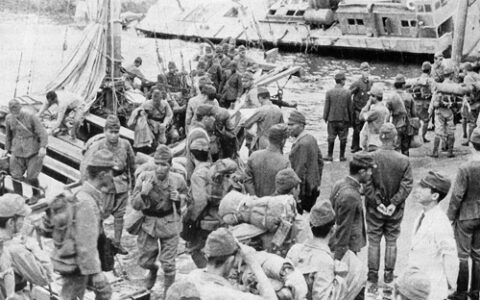
ダウンロード
場所
Online and DIJ Tokyo (access)
登録情報
This is a past event. Registration is no longer possible.
DIJ Mailing Lists
Please subscribe below to stay informed about our research activities, events & publications:
"Just Like Defeated Soldiers": The Imperial Japanese Military and the Looting of Post-Surrender Japan
2024年11月6日
Samuel P. Porter, Independent Scholar
Following the American conquest of Okinawa in June 1945, the Japanese military anticipated that the Allies planned to invade the four main islands of Japan. Across Japan, 4,335,500 soldiers and sailors anxiously waited for what they believed to be the final campaign of the war. But to everyone’s surprise, no such invasion came. Instead, the war abruptly ended on August 15, 1945, without a single Allied soldier setting foot on mainland Japan. This talk explores how soldiers and sailors within Japan reacted to defeat during the critical weeks after Japan’s surrender. Between August 15 and late September 1945, morale and discipline within military units across Japan underwent a wholesale collapse. Over the following weeks, tens of thousands of military deserters and demobilized servicemen engaged in widescale looting of military and civilian facilities. By the end of September 1945, much of the goods looted by former soldiers and sailors ended up resold for significant profit on Japan’s bourgeoning postwar black market. Using data from Japanese military police (Kenpeitai) reports, the presenter argued that looting by demobilized servicemen and their officers profoundly tarnished the Japanese military’s reputation in the eyes of the public and severed what few bonds remained between the Imperial Japanese military and Japan’s people.
Samuel P. Porter is a historian of modern Japan who specializes in the study of the prewar Japanese military and the early Cold War Period. He received his Ph.D. and M.A. in history from the University of Wisconsin-Madison. His research interests include Japanese foreign policy, Japanese colonial history, and the demobilization and reintegration of Japanese Second World War veterans.